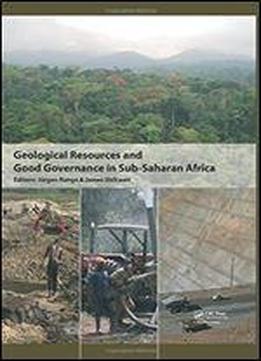
Geological Resources And Good Governance In Sub-saharan Africa: Holistic Approaches To Transparency And Sustainable Development In The Extractive Sector
by Jurgen Runge /
2011 / English / PDF
9 MB Download
This book looks at the distribution, occurrences, potential and prospects for good governance, transparency and sustainable development of geological resources in Sub-Saharan Africa. By bringing together numerous different point of views, it is carried out in a holistic, interdisciplinary and scientific way. The states of Sub-Saharan Africa are among the worlds most resource-rich regions yet many of these countries are a long way from attaining their development potential some are among the least developed in the world. Paradoxically, those countries that are most richly endowed with resources are often the least developed ("paradox of plenty"). This phenomenon is exacerbated in many African countries by inadequate governance and yet, if the state is unable to provide basic services, the application of social and environmental standards in the extractive and processing sectors will not be effective. The idea for this volume was conceived during an international conference of the Commission de la Communaut Economique et Montaire de lAfrique Centrale (CEMAC) on Geological Resources and Good Governance in Central Africa held in September 2009 in Yaound, Cameroon. International experts from the political, scientific and private sectors, along with civil society, came together and discussed the various demands being placed on good governance and transparency in the Sub-Saharan raw materials sector and the prerequisites that must be met, and considered how to seek answers to future challenges. New forms of inter-sectorial, transnational governance like the Extractive Industries Transparency Initiative (EITI) and civil societys transparency movements like Publish What You Pay (PWYP) offer ways to take account of all the different stakeholder interests in the resources sector. In this book there is also a strong focus on artisanal mining, on gender and on the spread of HIV/AIDS in the mining sector. This publication is addressed to stakeholders in the field, including civil society, international and private development agencies, planners, politicians and decision makers as well as to researchers such as earth scientists, economists, jurists and political scientists.











